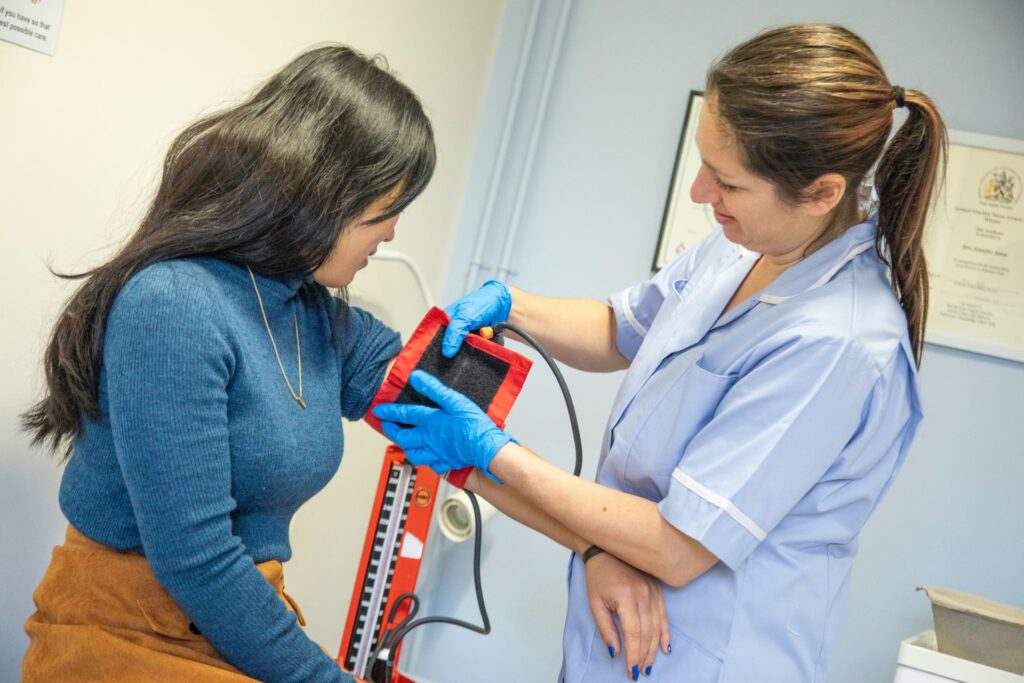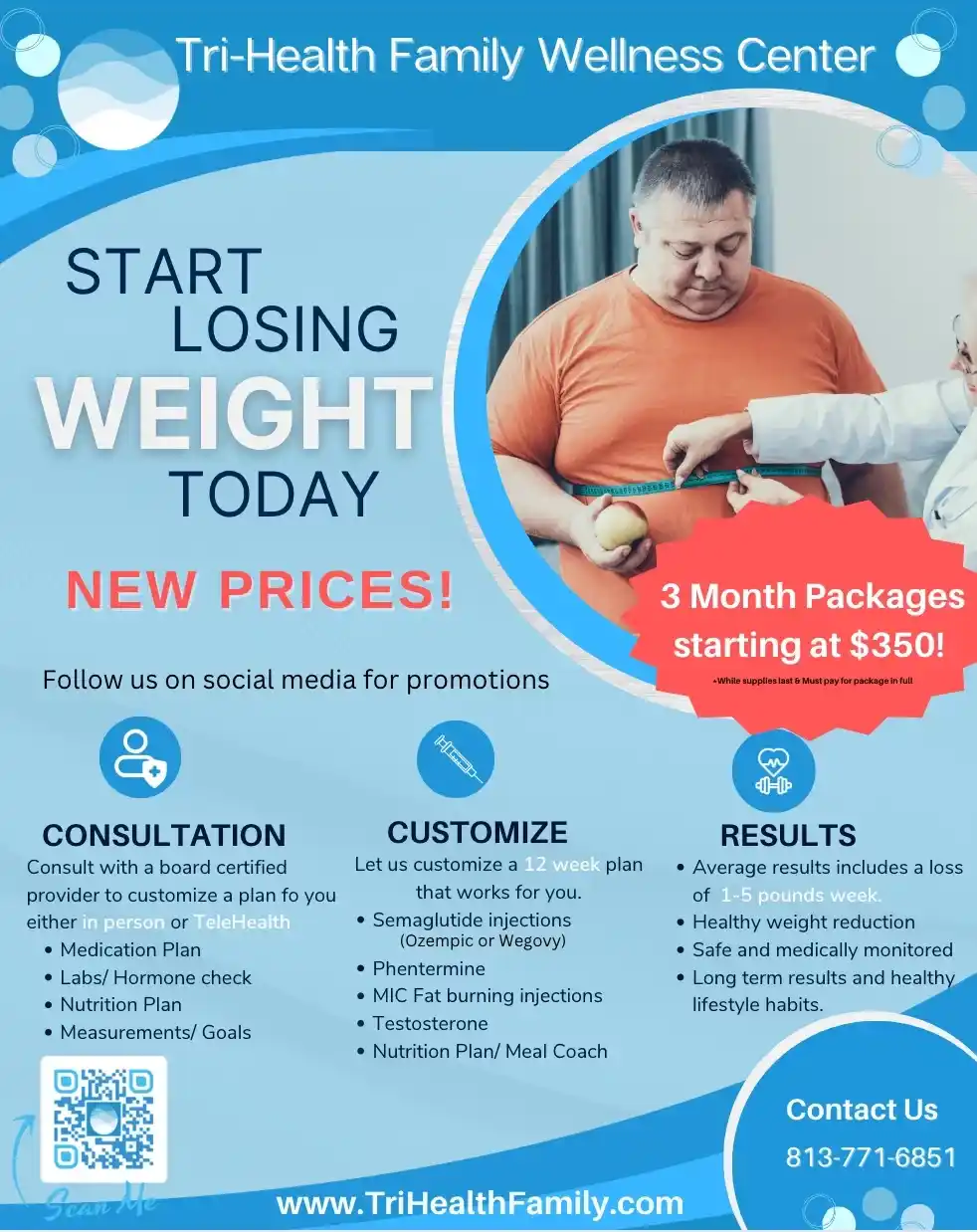Tri Health Family Wellness Center
The Importance Of Primary Care: Your Partner In Lifelong Health
In today’s fast-paced world, it’s easy to neglect our health amidst our busy schedules and numerous responsibilities. However, prioritizing primary care is crucial for maintaining our well-being and ensuring a healthier future. A family wellness center in Wesley Chapel, FL, can be your trusted partner in providing comprehensive primary care services that address your unique health needs. In this article, we will explore the significance of primary care and how it plays a pivotal role in safeguarding your lifelong health.
The Significance Of Primary Care In Comprehensive Healthcare Coordination
Primary care plays a crucial role in coordinating comprehensive healthcare and providing personalized and preventive care to individuals. Let’s explore why this coordination is essential for overall well-being:
Personalized Healthcare: Primary care physicians develop an in-depth understanding of their patient’s medical histories, family dynamics, and unique healthcare needs. This knowledge allows them to provide tailored and personalized care that addresses individual circumstances effectively.
Health Maintenance: Preventive care is a key focus of primary care. Through regular check-ups, vaccinations, and screenings, primary care practitioners monitor your health and identify potential risks or early signs of illness. This proactive approach enables them to intervene promptly and prevent the development of more severe health issues.

Continuity of Care: By having a primary care provider, you ensure continuity of care throughout your healthcare journey. Primary care serves as the central hub for managing your healthcare needs, coordinating specialist referrals, and overseeing the management of chronic conditions. This coordination ensures seamless transitions between healthcare providers and facilitates holistic treatment plans.
The Importance Of Building Trusting Doctor-Patient Relationships
The doctor-patient relationship lies at the heart of primary care, offering numerous benefits for patients. Here’s why building a trusting relationship with your primary care provider is crucial:
Long-Term Partnership: Primary care promotes long-term doctor-patient relationships, allowing providers to gain a deep understanding of your health journey over time. This continuity of care fosters trust, facilitates open communication, and empowers patients to actively participate in their healthcare decisions.
Holistic Approach: Primary care providers take a comprehensive view of your health, recognizing that it involves not only physical ailments but also mental, emotional, and social factors. They address the underlying causes of health issues and provide holistic care that goes beyond mere symptom management.
Patient Advocacy: Primary care physicians act as advocates for their patients within the healthcare system. They help navigate complex medical issues, explain treatment options in a clear and understandable manner, and empower patients to make informed decisions about their health.
Preventive Care And Health Promotion
Prevention is a cornerstone of primary care, offering several crucial benefits:

Health Education: Primary care providers play a vital role in educating patients about healthy lifestyle choices, disease prevention, and self-care practices. They provide valuable information, resources, and guidance on nutrition, exercise, stress management, and other factors that influence health. By promoting health literacy, primary care empowers individuals to take control of their own well-being and make informed decisions about their health.
Screening and Early Detection: Primary care includes routine screenings to detect potential health conditions in their early stages when they are more manageable. These screenings may include blood pressure checks, cholesterol screenings, cancer screenings, mental health assessments, and more. By identifying health issues early on, primary care providers can intervene promptly and initiate appropriate treatment or preventive measures. This early detection can significantly improve health outcomes and reduce the risk of complications.
Vaccinations and Immunizations: Primary care practitioners ensure individuals receive timely vaccinations and immunizations to protect against infectious diseases. Vaccinations are a critical component of preventive care, as they not only safeguard individual health but also contribute to public health by preventing the spread of communicable diseases. Primary care providers stay up-to-date with vaccination guidelines and recommendations, ensuring patients receive the necessary immunizations to maintain their health and well-being.
Coordinated Care And Chronic Disease Management In Primary Care
Primary care plays a vital role in managing chronic conditions:

Coordinated Care: Primary care providers serve as the central point of contact, coordinating the management of chronic diseases. They collaborate with specialists, therapists, and other healthcare professionals to develop comprehensive treatment plans that address all aspects of care. This coordinated approach ensures that all healthcare providers are aligned, optimizing treatment outcomes and enhancing the overall quality of care.
Medication Management: Primary care physicians closely monitor medication regimens for patients with chronic diseases. They assess the effectiveness of medications, monitor for potential side effects, and make necessary adjustments to prescriptions. By managing medications, primary care providers help prevent medication interactions, ensure appropriate dosages, and promote adherence to treatment plans. This proactive approach enhances the safety and effectiveness of medication regimens.
Lifestyle Modifications: Primary care providers play a crucial role in assisting patients with making lifestyle modifications to effectively manage chronic conditions. They provide guidance on nutrition, exercise, stress management, and other strategies that can improve overall well-being. By addressing lifestyle factors, primary care providers empower patients to make positive changes that can positively impact their health outcomes and quality of life.
Conclusion
In conclusion, a family wellness center in Wesley Chapel, FL, offers essential primary care services for maintaining lifelong health. With a focus on coordinated care, medication management, and lifestyle modifications, these centers address the needs of individuals with chronic diseases. By prioritizing prevention, providing education, and offering comprehensive healthcare coordination, family wellness centers in Wesley Chapel, FL, serving as trusted partners in promoting optimal health outcomes.
Investing in primary care services at a family wellness center in Wesley Chapel, FL, is a valuable commitment to lifelong well-being. Through screenings, vaccinations, and personalized care plans, these centers prioritize quality care and empower individuals to take control of their health. With their expertise and dedication, family wellness centers in Wesley Chapel, FL, ensure that patients have a reliable partner in their healthcare journey, supporting their overall health and wellness.
Tri Health Family Center Wesley Chapel FL
Discover Tri-Health Family Wellness Center in Wesley Chapel, FL. Our full-scope family medicine practice offers high-quality care for all ages. From urgent care and women’s health to primary care and medspa services, we provide comprehensive care tailored to your needs. Experience compassionate, patient-centered care with our dedicated team of professionals. Visit us today for efficient and timely healthcare services.



